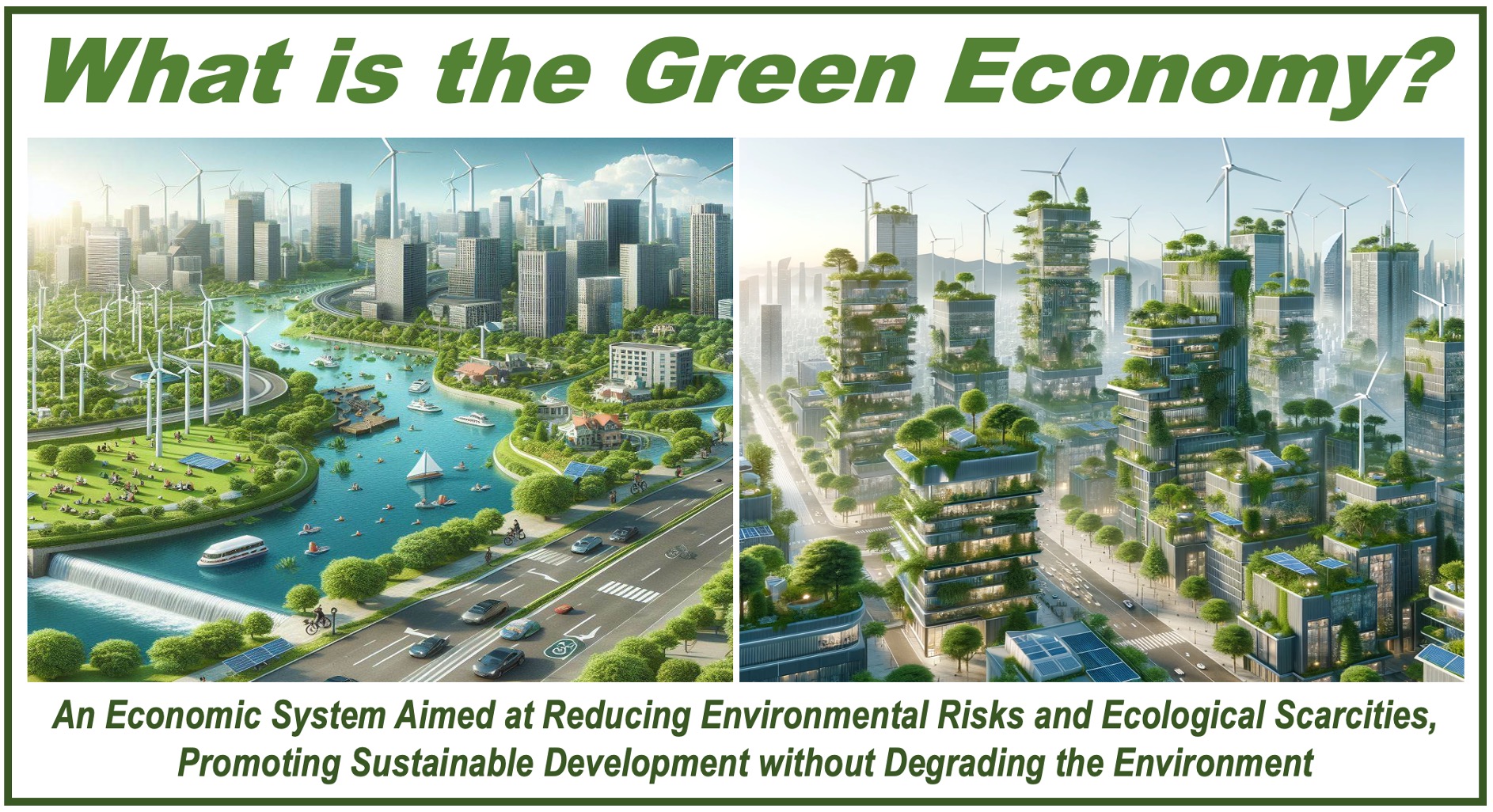The Green Economy is an economic system that is environmentally friendly and sustainable. It aims to minimize or reduce water, air and land pollution, the emission of greenhouse gases, and ecological scarcities.
The term ecological scarcities refers to the limited availability of natural resources and environmental services that are essential for sustaining life and ecosystems.
Environmental concerns like climate change and pollution have become more prominent than ever, and the concept of the green economy has gained significant traction.
Green economy – growth and the environment
The green economy is about fostering economic growth and development while ensuring that natural assets continue to provide the resources and environmental services on which our well-being relies.
The United Nations Environmental Program says the following about the green economy:
“In a green economy, growth in employment and income are driven by public and private investment into such economic activities, infrastructure and assets that allow reduced carbon emissions and pollution, enhanced energy and resource efficiency, and prevention of the loss of biodiversity and ecosystem services.”
Focus of the green economy
The green economy, at its core, focuses on three main areas:
- Reducing carbon emissions.
- Preventing pollution.
- Conserving resources.
It prioritizes the transition to renewable, non-polluting energy sources such as solar energy, wind power, tidal energy, and hydropower, while gradually phasing out energy generation from fossil fuels. The term fossil fuels refers to oil, natural gas, and coal.
The green economy also promotes energy efficiency, waste reduction, and sustainable agriculture practices that protect the environment.

Businesses and the government
The business world
For businesses, the green economy means adopting green practices and technologies, that is, practices that are not only environmentally friendly but also economically viable.
In other words, business practices must be able to achieve two things:
- Protect our environment.
- Allow companies to thrive or make a profit.
Governments and local authorities
For governments, it involves implementing policies that encourage sustainable practices and green investments. This may include:
- Subsidies for renewable energy products.
- Taxes on carbon emissions.
- Tax breaks for electric vehicle purchases.
- Regulations that limit pollution and encourage recycling.
- Investment in public transportation systems to reduce reliance on fossil fuels.
- Financial incentives for businesses to adopt energy-efficient practices and technologies.
- Funding for research and development in sustainable technologies and renewable energy sources.
- Implementation of green public procurement policies, favoring environmentally friendly products and services in government contracts.
- Support for sustainable agriculture practices through grants and technical assistance to farmers.
- Enhanced enforcement of environmental legislation to ensure companies comply with sustainability standards.
The benefits of the green economy
The green economy can lead to job creation in new industries, lower energy costs, and better public health due to lower pollution levels.
It can ensure a sustainable future for coming generations and help countries across the world become more resilient to the impact of climate change, such as rising sea levels and extreme weather events.
Conclusion
The green economy represents a shift to a more sustainable and environmentally responsible economic model. It is about balancing economic growth with environmental stewardship.
We will still be able to raise our standard of living, but in a way that ensures that our planet remains livable for future generations.
Three Videos
These three YouTube videos come from our sister channel, Marketing Business Network. They explain what the terms “Renewable Energy”, “Climate Change”, and “Greenhouse Gas” mean using easy-to-understand language and examples:
-
What is Renewable Energy?
-
What is Climate Change?
-
What is a Greenhouse Gas?
